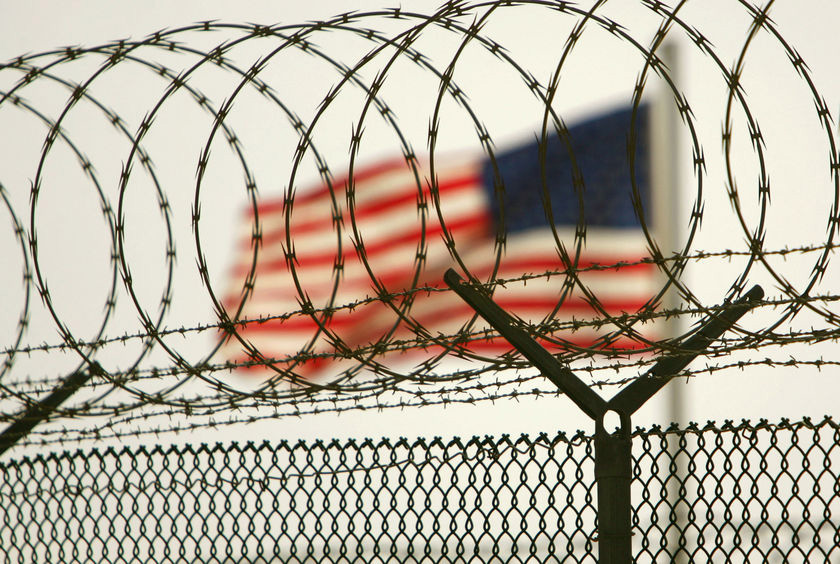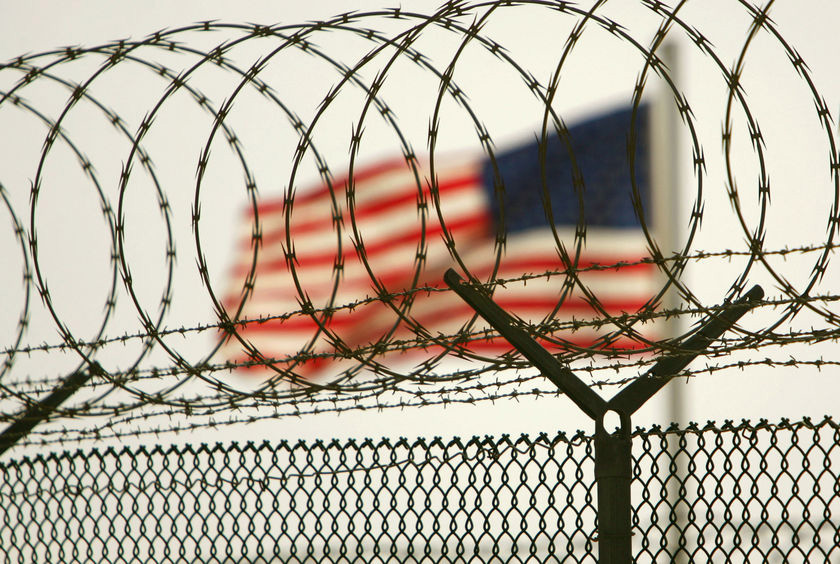


Malaysia: the ICJ condemns passage of National Security Council bill, urges reforms in lawmaking
The ICJ condemned the passage of the National Security Council bill by Malaysia’s House of Representatives today. The passage of the bill underlines the need to establish reforms in the lawmaking processes in the country, the Geneva-based organization says.
The ICJ calls on the Government of Malaysia to undertake these reforms immediately.
The bill, hastily tabled at the House of Representatives on 1 December 2015 by the Government, was passed by a vote of 107 in favour and 77 against the proposal.
Members of the ruling party, Barisan Nasional, voted overwhelmingly in its favor.
The vote took place despite repeated calls from Malaysian civil society, opposition lawmakers, and human rights advocates to delay consideration to allow for extensive debate and adequate consultations on the draft legislation.
The ICJ deplored the manner in which the government steamrolled the bill to passage.
“The same rushed maneuvers occurred when the Prevention of Terrorism Act (POTA) and amendments of the Sedition Act were hastily passed in parliament earlier this year,” observed Emerlynne Gil, ICJ’s Senior International Legal Adviser for Southeast Asia.
“There seems to be a disturbing pattern of avoiding deliberative care on legislation that is both addressed to serious security concerns that have the greatest implications for human rights,” she added.
The ICJ considers that the poorly conceived legislation gives overbroad powers to the Prime Minister and the security forces which is inconsistent with the rule of law and could lead to serious human rights violations
The bill establishes a National Security Council (NSC) that will be the central authority in the government on matters pertaining to national security.
The NSC will be headed by the Prime Minister and composed of the Deputy Prime Minister, Minister of Defence, Minister of Home Affairs, Minister of Communication and Multimedia, Chief Secretary, the Commander of the Armed Forces, and Inspector-General of Police.
Under the bill, the Prime Minister is granted the power to declare any part of Malaysia as a “security area” if it is found by the NSC that such area is under serious threat from any person or entity that could harm the general public, the economy, infrastructure or other national interests.
Any part of the country may be declared a “security area” by the Prime Minister for up to six months and the declaration may be renewed an infinite number of times.
A Director of Operations is also to be appointed to oversee the operations over the “security areas”.
The specific powers of the Director of Operations are left vague, but they are overbroad and therefore prone to abuse.
They apparently include authority to prevent any person from entering these “security areas”, to transfer persons out of these areas, to impose curfews, and at least temporarily, to take possession of any property necessary in the interest of national security or for the accommodation of the security team.
The security team under the Director of Operations will have the power to conduct warrantless arrests and warrantless searches and seizures.
There are no processes specified by which affected persons may challenge such actions, either before a court or administrative body, nor are there other procedural safeguards.
Any members of the security team would be authorized to “use any amount of force against a person or entity to the extent that is reasonable and necessary within the circumstances to protect national security”.
The ICJ notes that under international law, lethal force may only be used to the extent strictly necessary to protect life.
Finally, the draft law provides immunity from any legal proceeding for members of the NSC, the Director of Operations, the security team, and other government staff involved in the administration of the “security area” for carrying out their duties and functions under the law.
There is no exception even in cases involving serious violations of human rights and crimes under international law, for which immunity is not permitted.
“The wide ranging powers conferred to members of the NSC and the security team clearly lack any form of safeguards and will inevitably lead to arbitrary exercise of authority, in contravention of the rule of law. This bill could very likely be used to further restrict freedom of expression and opinion and other rights in the country,” said Emerlynne Gil.
Vague and overbroad language in laws are inconsistent with the rule of law, contravening the principle of legality, the ICJ says.
This poses particular hazards in respect of national security legislation.
The bill will now need to be passed by the Senate and thereafter, the Malaysian King will have to assent to it so that it becomes law.
The ICJ expects the bill to be passed by the Senate and assented to by the King without thorough deliberations.
Nevertheless, it still calls on both the Senate and the King to reject the present draft, with a view to returning it the House to make necessary reforms in line with the rule of law.
Contact:
Emerlynne Gil, ICJ Senior Legal Adviser (Bangkok), t: +66840923575, e: emerlynne.gil(a)icj.org

ICJ condemns Paris attacks
The International Commission of Jurists (ICJ) deplores the devastating criminal attacks carried out in Paris on 13 November, leading to the loss of at least 129 lives and many serious injuries. The ICJ extends its condolences to the victims and their families.
The attacks were calculated to cause the greatest possible arbitrary destruction of lives and of human rights.
Those responsible for these heinous crimes must now be investigated and brought to justice, in a manner that ensures strict compliance with human rights and the rule of law.

Maldives: lifting of emergency welcomed, but reflects deep erosion of rule of law
While welcoming the Maldives government’s revocation of the emergency yesterday, the arbitrary manner in which the emergency was first imposed and then suddenly revoked within the span of a week reflects a deeper erosion of the rule of law in the country, the ICJ said today.
On 10 November, a week after declaring a 30-day state of emergency, the Maldives lifted the emergency reportedly because authorities had arrested several people in connection with an alleged plot to “use dangerous weapons and explosives”, thereby neutralizing the purported national security threat cited as the grounds for the emergency.
Maldivian authorities have not provided any information as to who or how many individuals were arrested or the nature of the charges.
“The imposition of a state of emergency is not a political tool to be used willy-nilly as a matter of convenience to suspend human rights protections and suppress political opposition,” said Nikhil Narayan, ICJ’s South Asia Senior Legal Adviser.
“A state of emergency that suspends constitutional rights is not to be declared lightly,” he added. “It has serious implications for human rights and the rule of law in the country, and must only be invoked in the most extreme situations and in accordance with international law.”
International law expressly permits derogations of certain human rights only in times of public emergency which threatens ‘the life of the nation’.
“Declaring a 30-day emergency and then suddenly lifting it a week later only reinforces the serious concerns previously raised as to the legitimacy of the emergency in the first place, and speaks to the larger rule of law crisis in the country,” Narayan said.
The emergency decree issued by the Maldives government last week suspended several constitutional rights, including the right to freedom of peaceful assembly, and reduced the constitutionally mandated period for the vice president to respond to impeachment charges from 14 to 7 days.
The opposition Maldivian Democratic Party (MDP) had planned a public anti-government demonstration for 6 November, two days prior to which the emergency was declared.
Meanwhile, the vice president was removed from his post the day after the emergency decree, 5 November, in a swift and seemingly arbitrary impeachment hearing.
“The circumstances surrounding events in the Maldives this past week clearly suggest that the government was using the emergency as a ploy to prevent the planned opposition rally and to eliminate the vice president as a political threat,” said Narayan.
The emergency also granted sweeping powers of search, arrest and detention without warrant to the police, who reportedly raided several buildings and arrested an unknown number of individuals under its emergency powers over the past week.
“The Maldives government cannot flout international law by invoking emergency powers as a means to deny the due process rights of the vice president and others arrested or detained for alleged crimes,” added Narayan. “The government must ensure that the individuals arrested during the emergency are afforded their full fair trial and due process rights in accordance with international law.”
Additional Information:
The ICJ previously raised concerns that the alleged grounds for the emergency did not appear to establish a threat to the life of the as required by the high threshold set by international law, and could not in any event justify the complete suspension of constitutional rights.
In August 2015, following a joint fact-finding mission to the Maldives, the ICJ and South Asians for Human Rights (SAHR) documented the breakdown of the rule of law and human rights in the Maldives in a 35-page report, Justice Adrift: Rule of Law and the Political Crisis in the Maldives.
Contact:
Nikhil Narayan, ICJ Senior Legal Adviser for South Asia, t: +977 9813187821 ; e: nikhil.narayan(a)icj.org





